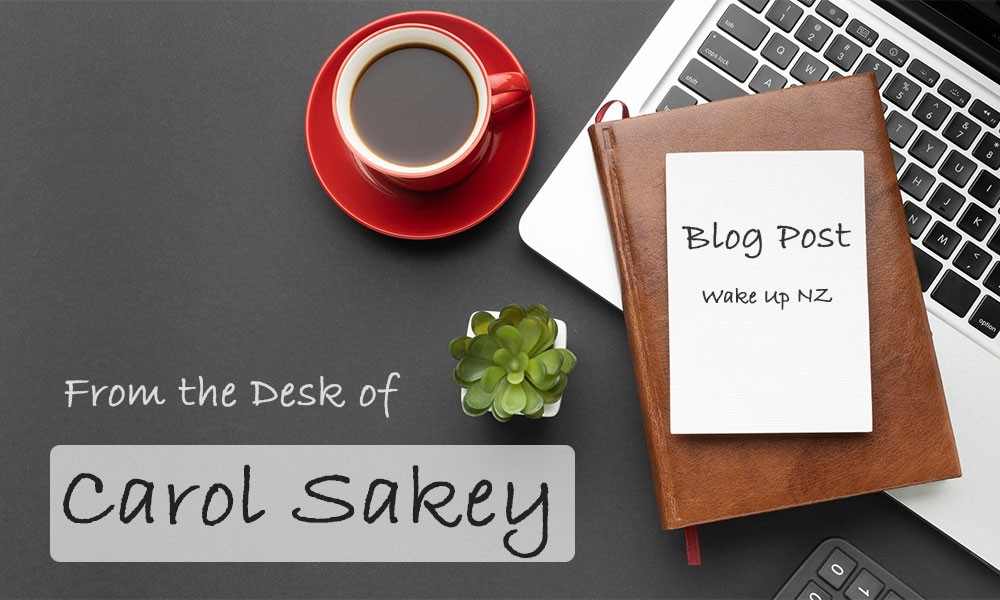FIRSTLY-TO MAKE MY CASE I WILL EXPLAIN WHAT AN ‘OFF LABEL MEDICINE ‘is, later you will find out why I am explaining this ‘An Off Label Medicine is an unapproved drug can be used under certain regulations, legislations.
Under Sect 23 of the Medicine Act 1981 this provides the Minister of Health to grant provisional consent when considered desirable for the medicines to be sold, supplied or used on a restricted basis (LIMITED BASIS) for the treatment of a LIMITED number of patients (People)
June 12th 2015 The National Library Of Medicine published an article ‘Off-Label drug use as a consent and health regulation issue in New Zealand. ‘Off Label’ described as not yet approved or the status of drugs that have been approved
The NZ Medicines Act 1981 specifically allows for off-label drug use, however this authority is limited-Code of Health & Disability Services Consumers Rights Regulations and Common Law state:- It is required that ‘off-label’ drug use is of an acceptable standard, the patient should be fully informed, the patient must give informed consent.
‘Off Label drug use is an extremely important issue, the current law provides medical practitioner very wide discretionary power without providing classification for what is required of the practitioner in exercising this discretion ’off label’.
SO WHAT HAS THE NZ GOVTS THEREPEUTIC PRODUCTS BILL GOT TO DO WITH THE REPLACING OF THE MEDICINES ACT WITH ‘OFF LABEL’ MEDICINE?
The Government had unsuccessfully introduced policy proposals for the Therapeutic Content proposals back in 2011 and 2016. In 2019 the Therapeutic Product proposal was back on the governments table. “Iwi/Maori natural medicines would be exempted from the Therapeutic Product proposal”
A Med-Safe Report in May 2022 refers to the Medicine Act being replaced with the Therapeutic Products Bill to allow for ‘Off Label’ Medicines Chris Hipkins the COVID19 Response Minister and Andrew Little Minister Of Health where the Director General has the ability to make decisions regarding the administration of the COVID19 jabs, the dose and the frequency as the pandemic developed whilst being outside of the established Medsafe Regulations- medicine process.
A legal base for the provision of the medicines process of any further doses of COVID19 Vaccines (Jabs) including Pfizer’s 4th doses. The 4th dose had not yet been approved by Med-Safe. The government had recommended that Maori and Pacifika peoples over the age of 50 who are immune-compromised can receive the 4th Pfizer dose before winter 2022. NO public consultation was undertaken as to the governments proposal, however the 4th dose was consistently promoted by mainstream media.
Ministry of Health reported that Pfizer have not yet applied for approval of 4th dose in NZ, that local jurisdictions have to find their own approval strategies.
2.The Ministry of Health reported as to Maori, Pacific peoples health- cannot be overstated as to the impact of COVID19 that there is a time pressure to maximize immunity when winter illnesses are at their peak. (Specific targeting of Maori and Pacific Island peoples for COVID19 jabs -guineapigs) saying “It would be ideal to enable the broader doses of4th Pfizer doses. Opportunities to administer flu and COVID 19 jabs at the same time.
To provide their populations with 4th doses, but they had to find their own legal route.. However Standing Orders cannot be made for an unconsented medicine (A new medicine), this undermines the purpose and consents process under the 1981 Medicines Act
NOTE: Under the Medicines Act 1981 ‘Off Label’ – number of people receiving doses of ‘unapproved Med-Safe medicines are limited. Pfizer COVID19 dose 4 was unapproved and therefore limited as to how many New Zealanders could receive it.
The government ‘WITH URGENCY’ introduced new arrangements, they were implemented to amend the Medicine Act introduced 7th June 2022, passed in mid June- recommended by Andrew Little that the Ministry Of Health would be responsible for the implementation of the 4th dose of Pfizer, utilizing all existing delivery settings, processes & technology that has been used previously for the COVID19 rollout.
Ministry Of Health to monitors new data collection. Andrew Little Minister Of Health will administer the application of the Medicines Act 1981 to ensure ‘off-label’ medicines eg COVID19 Pfizer 4th Dose practices.( Ria-moh-amat-may.22.pdf)
In a Court hearing-Judge Rebecca Ellis stated when referring of ‘off label’ medicine, “a limited number of people specified for in Section 23 Medicines Act 1981. This could NOT be stretched to the whole population over 16years old” Andrew Littles response to Judge Ellis was “I will fix the snag” (Intro to the Therapeutic Product Bill)
RNZ reported 18/5/2021 ‘Technical Anomaly Spurs Urgent Law Change for COVID 19 Vaccine. Government URGENTLY’ seek a change of law to ensure COVID19 Vax rollout is LEGAL following the High Court decision of Judge Rebecca Ellis. Judge Ellis ruled it was ‘reasonably argued, that the governments approval of Pfizer vaccine rollout went beyond the Medicines Act 1981 allowed” . This gave Andrew Little the right to approve medicines for a limited number of patients. However the COVID 19 Vaccine rollout would cover all New Zealanders over the age of 16years. THUS NOT LIMITED AS IN MEDICINE ACT 1981
Chris Hipkins response to Judge Ellis was “this raises no safety issues, it just highlighted a technical anomaly as to the law. NOTE THE GOVERNMENT WAS TECHNICALLY BREAKING THE LAW. AND THEY NEEDED TO COVER THEIR ARSES.
Andrew Little again responded to Judge Ellis “The government will pass legislation under URGENCY to rectify the problems ( THERAPEUTICS PRODUCTS BILL- This will most definitely be passed to save Governments arses)
Six products are potentially affected by Judge Ellis court decision these include Pfizer Vaccines, 2 Flu Vaccines and 2 types of contraceptives and an electrolyte solution
3.On the 30November 2022 the Therapeutic Product Bill was officially introduced by Andrew Little to the House (Parliament). He describes this in his speech in the Beehive “To modernize the way medicines, medical devices (includes COVID Test Kits) and Natural Health products are regulated. Strict rigorous regulations on natural health products eg. Vit C, Vit D etc., etc., you can buy at the supermarket.
The Therapeutic Product Bill if passed replaces the Medicines Act 1981 and the Dietary Supplement Regulation 1985 with one comprehensive regulatory regime. Andrew Little stated “FIT FOR THE FUTURE’. Enables NZ to take advantages of advances in medicine -gene therapies, AI and machine learning software also vaccines for pandemics. The Therapeutic Product Bill legislation will work alongside, contribute to ‘Pae Ora Health Futures Act’
David Seymour said “Medsafe tended to approve drugs that were approved elsewhere in the world saying “Well, has Medsafe ever declines to approve a drug that the rest of the world is safe”. David Seymour was supporting replacing the Medicine Act 1981 with the Therapeutic Product legislation. He also stated “the Court were right to uphold the law, however he backs the law change to replace the Medicine Act with the Therapeutic Product Legislation.
As to Judge Rebecca Ellis court outcome David Seymour said “the Court were right to uphold the law, however he backs the law change to replace the Medicine Act with the Therapeutic Product Legislation. National Party COVID19 Minister Chris Bishop said to reporters that National Party support the law change. .
RNZ Reported 18/5/2021. Technical Anomaly spurs Urgent Law Change. Government urgently seek a change in law to ensure COVID19 Vaccine rollout is LEGAL following a High Court decision. Judge Rebecca Ellis ruled “it was reasonably argued that the government approval of Pfizer Vaccine rollout went beyond the Medicine Act 1981.
NOTE: The Medicine Act 1981 only gave the government the right to approve a limited number of patients, whereas the COVID19 Vaccine Rollout covered everyone in NZ over 16years of age. There are be legal enforcement includes, huge fines, court hearings etc., for those who do not comply to the Therapeutics Legislation (announced Beehive)
SO BASICALLY—THE THERAPEUTICS PRODUCT BILL IS TO SEVERELY RESTRICT NEW ZEALANDERS ABILITY TO PURCHASE NATURAL HEALTH REMEDIES. FOR THE GOVERNMENT TO COVER ITS ARSE FOR CRIMINALLY BREAKING THE MEDICINES ACT 1981 BY REPLACING THE MEDICINES ACT WITH THE THEREUPEUTIC PRODUCT BILL TO PROMOTE JABS FOR PANDEMICS, MORE HUMAN TRIAL GUINEAPIGS. THE ADVANCEMENT USE OF AI AND GENETIC CELL ADVANCEMENT TRIALS AND DRUGS.
https://pubmed.ncbi.nlm.nih.gov/25096169/
https://www.medsafe.govt.nz/COVID-19/status-of-applications-asp-ria-moh/amat-may22.pdf
...




